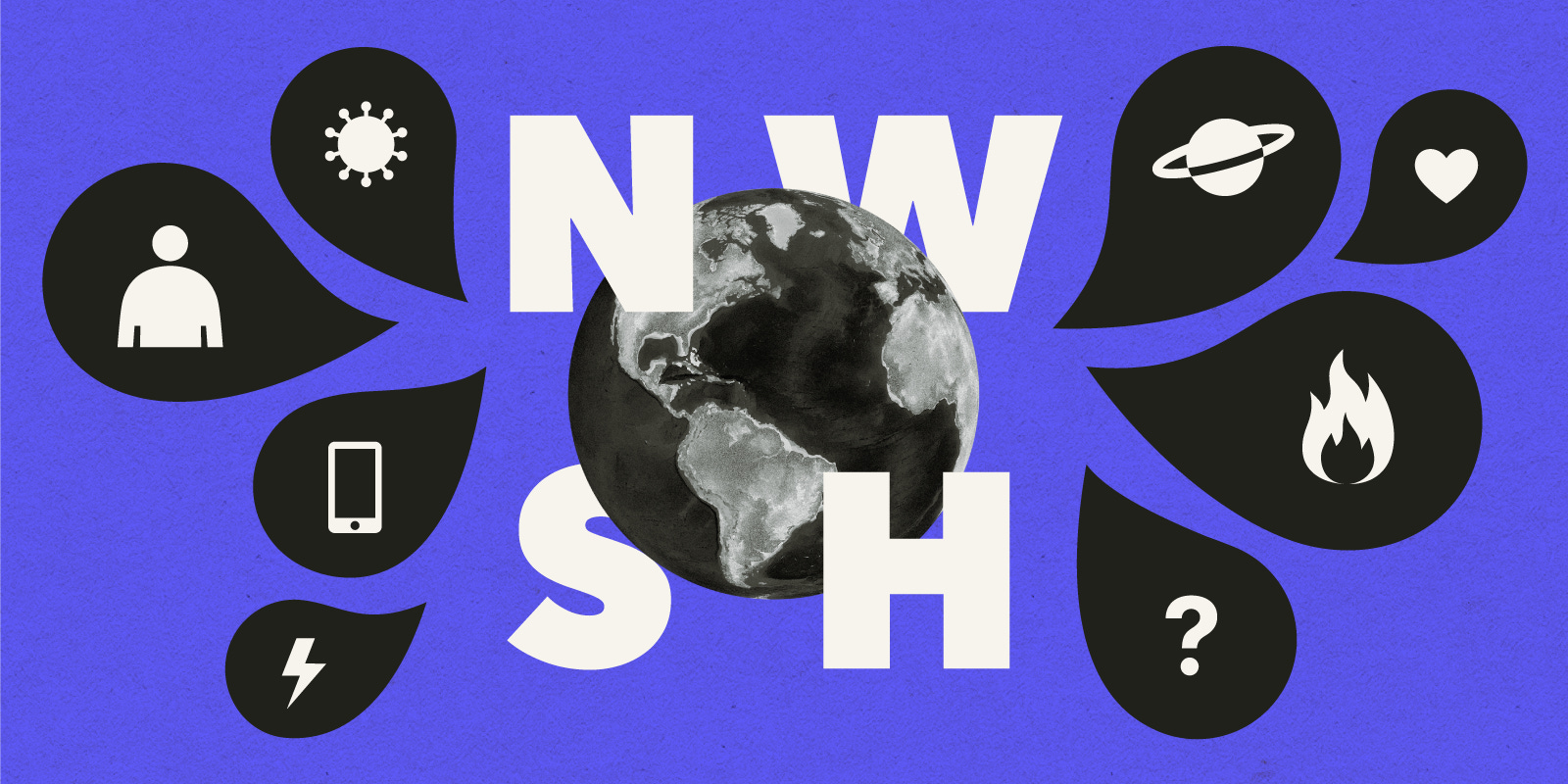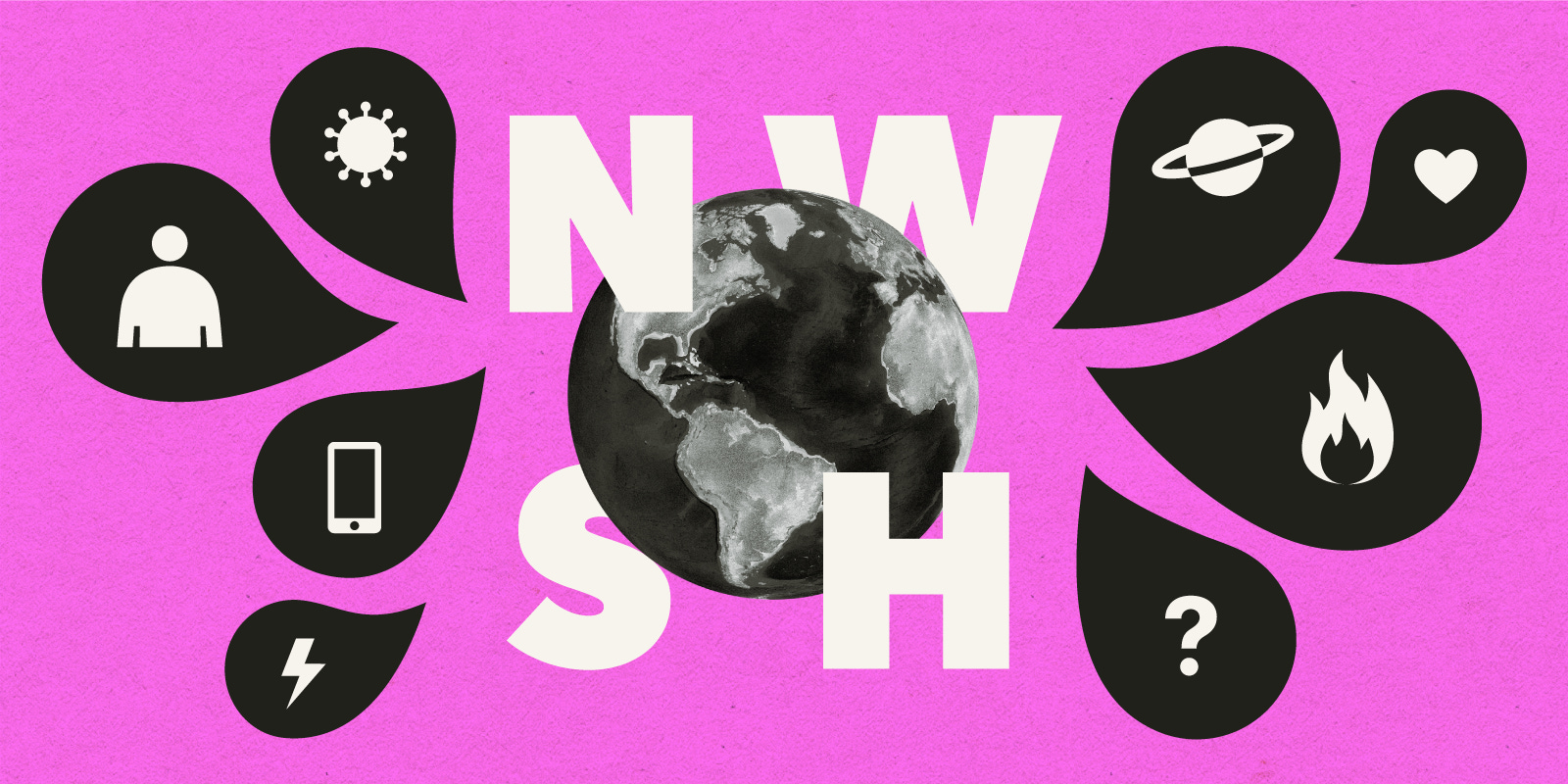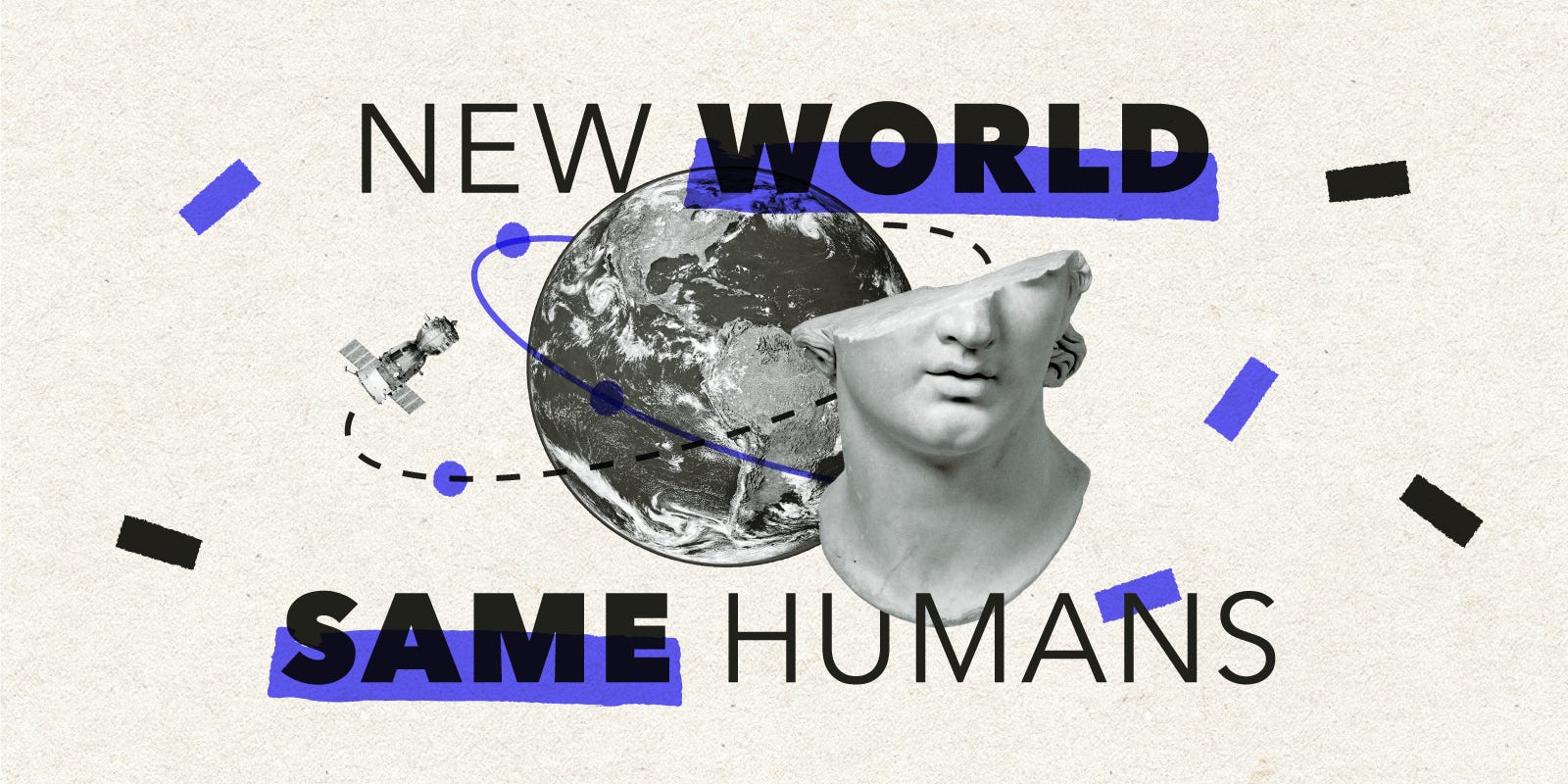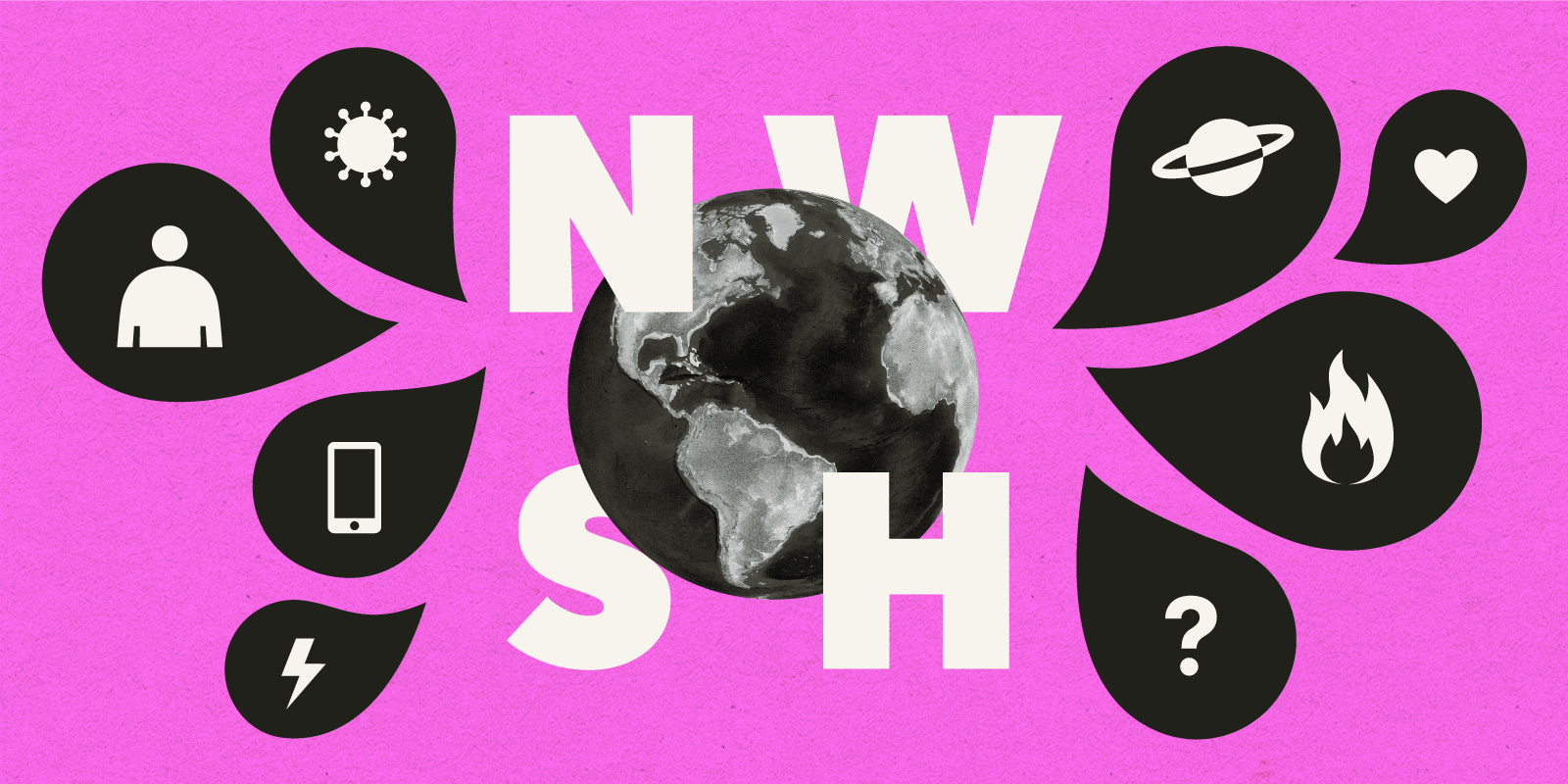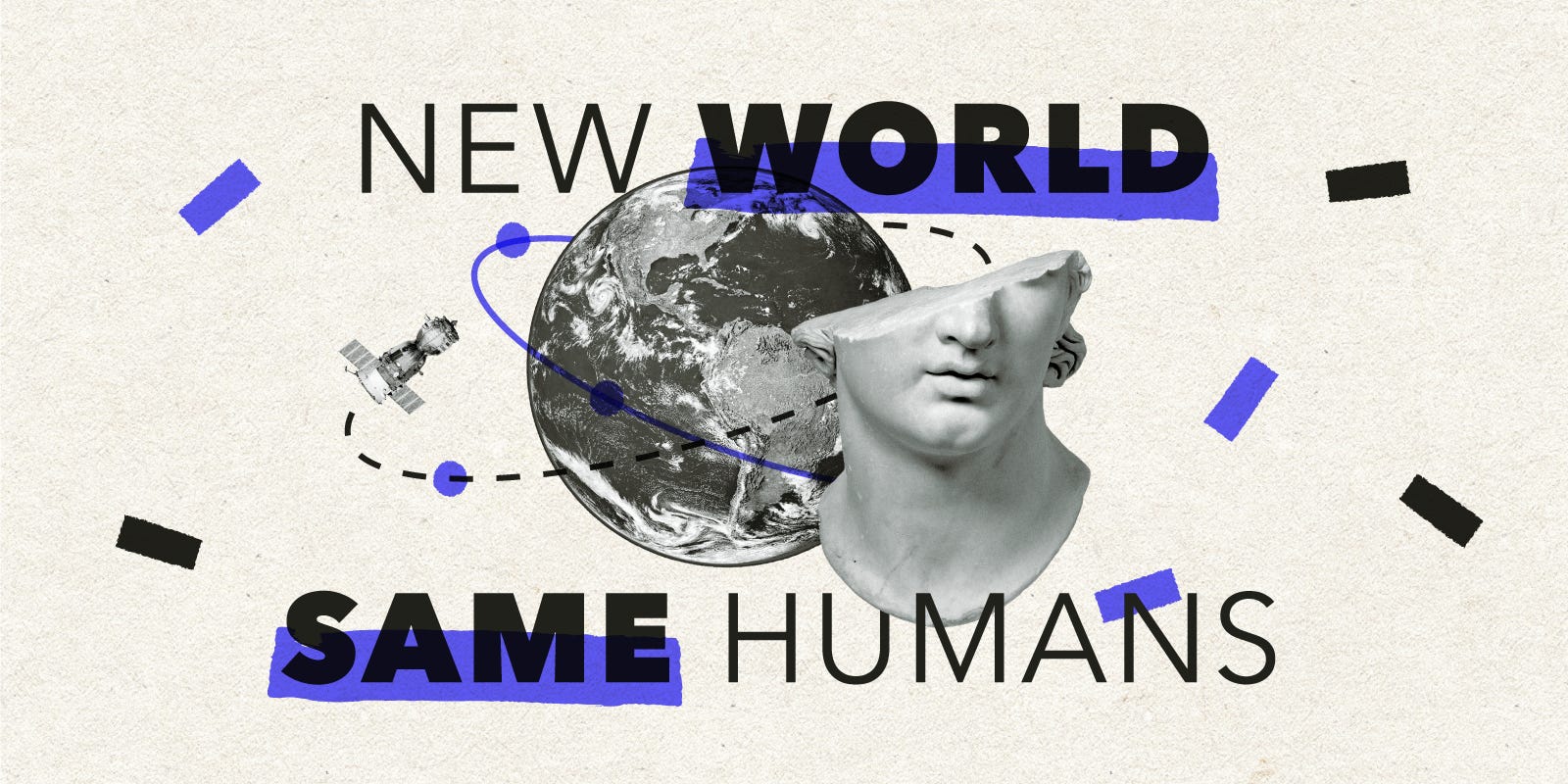New Week #110
Description
Welcome to the mid-week update from New World Same Humans, a newsletter on trends, technology, and society by David Mattin.
If you’re reading this and haven’t yet subscribed, join 24,000+ curious souls on a journey to build a better future 🚀🔮
To Begin
Greetings from London! We’ve just seen seven days containing plenty of fuel for the NWSH fire.
This week, a UK-based startup release an amazingly good AI text-to-voice tool. Until all hell breaks loose, and they promptly unrelease it.
Meanwhile, new research suggests 1.5C of global heating is coming sooner than we thought. And DHL turn to Boston Dynamics to solve their labour shortage woes.
Let’s get started.
🎤 Voice control
This week, further glimpses into the halls of mirrors taking shape around us via generative AI.
UK-based voice technology startup ElevenLabs launched a new text-to-speech model that generates eerily pitch-perfect, human-sounding voices. Here’s a snippet:
I listen to a lot of audio books. To my ear, the voice reading Gatsby above sounds indistinguishable from those of the handful of actors — male, American, blessed with a soothing voice — who narrative most of them.
What’s more, the tool allows anyone to create a highly convincing voice clone in seconds, simply by uploading a few short clips of the voice they want to recreate.
And that’s what caused all the trouble this week. Within days, people had used the tool for all kinds of mischief, including using a voice clone of actress Emma Watson to read passages from Mein Kampf, and sending a cloned Ben Shapiro on a racist rant about Alexandria Ocasio-Cortez. Much of this content was shared on the infamous troll’s paradise that is 4Chan.
Three days after launch ElevenLabs withdrew free access. They’re now restricting access to the ‘build your own clone’ feature to paid users, and say they’re working on a tool that will allow for the near-instant detection of AI-generated voices.
The announcement echoed one made this week by The Big Player in generative AI:
OpenAI’s new tool will allow users to identify text written by a generative model, including by GPT-3.
This week, OpenAI announced that ChatGPT has hit 100 million users just two months after launch. The vast popularity of the tool has led to speculation that the internet is about to be hit by a tsunami of AI-generated junk content and disinformation.
⚡ NWSH Take: The ElevenLabs story is a signal of the potent difference between really good and perfect when it comes to generated/deepfake content. Just a few months ago publicly text-to-voice tools were generating voices that sounded good, but a little robotic. ElevenLabs elevated fidelity to perfect; cue the spectre of a million convincing celebrity says hateful things fakes. // No wonder, then, that AI detection tools are about to become big business. Right now, these tools are in their infancy. Pretty soon, internet browsers will come with AI detection as standard. // The broader message here? New forms of generated content — including voice clones — are about to transform media and entertainment. Back in New Week #100 I wrote on how an AI will voice Darth Vader in Disney’s Obi-Wan Kenobi series; this week brought news that AI startup Metaphysic — best-known for their viral Tom Cruise deepfakes — will deploy its technology to make Tom Hanks appear younger in his next film. How long before a Hollywood film uses AI to reincarnate a much-loved star who is no longer with us? // But it won’t only be Hollywood and media giants that leverage generated media; new tools will mean new creative possibilities for all of us. One glimpse? Check out this person who automated the creation of a personalised podcast; he uses ChatGPT to collect and summarise stories on topics of interest, and ElevenLabs to read out the summaries using a clone of his own voice.
🌇 Only adapt
Research published this week argues that we’re going to exceed the 1.5C global warming target far sooner than most people believe.
Produced by scientists at Stanford University, the study used AI to analyse recent temperature changes around the world. It concluded that we’ll exceed 1.5C some time in the early 2030s, no matter what happens to greenhouse gas emissions in the intervening period.
Perhaps more alarming, though, is the paper’s prediction when it comes to 2C of warming.
The model found that if reaching net zero emissions takes another 50 years, then it is likely that 2C will be exceeded. This runs counter to the mainstream view, recently expressed by the Intergovernmental Panel on Climate Change, that we’ll stay below 2C if we can reach net zero by 2080.
Lead researcher Noah Diffenbaugh said: ‘net-zero pledges are often framed around achieving the Paris Agreement 1.5 C goal. Our results suggest that those ambitious pledges might be needed to avoid 2 C.’
⚡ NWSH Take: It’s been said before in this newsletter: the 1.5C target is toast. We’re already at 1.1C, and the pledges that were meant to keep us below 1.5C are not being met. Now comes news that those pledges probably won’t keep us below 1.5C anyway. // The answer, here, insofar as there is one? It’s about adaptation. This week also saw a report from the UK’s Climate Change Committee — which advises government on warming — that the UK is ‘chronically underspending’ when it comes to adaptation; investment of £10 billion a year is needed, said the report, to prepare for the uptick in storms, floods, and heatwaves that is coming. Also see mounting evidence for the effectiveness of direct cash transfers to poorer countries to help them adapt quickly to an imminent storm or flood. // In short, we need to continue our attempts to mitigate future climate change, while also doing more to adapt to the change that’s already unavoidable. That presents multiple challenges, but one is a challenge of collective psychology: can we accept that things are already quite bad, without giving up on our attempts to stop them getting even worse?
🤖 Go bot
Robots are coming to a workplace near you; this week saw glimpses of what is ahead.
Logistics giant DHL announced that they’re now using the Boston Dynamics robot known as Stretch to unload trucks at one of their warehouse sites.
The announcement is no surprise: DHL contributed to the conception and testing of Stretch, and in 2022 they became the first commercial customer for the robot.
Because it involves lifting variable weights and navigating complex environments, the unloading of boxes from trucks is still typically undertaken by human workers. Stretch can unload around 350 boxes an hour, or one every 12 seconds — that’s far faster than a human.
DHL say they’ve been dealing with a pandemic-induced labour shortage in recent years, combined with an ongoing surge in the sending of small packages caused by online shopping. The company plans to install Stretch robots at further sites around the US soon.
But DHL’s global digital transformation officer for Supply Chain, Sally Miller, says DHL warehouse workers have nothing to fear. The advent of robotics, she says, will simply make their job easier and more fun: people who used to unload trucks ‘can do something else that is less labour intensive and more enjoyable and value added’.
⚡ NWSH Take: Who knows whether DHL’s Sally Miller believes what she’s saying? And sure, the story of worker displacement here is more complex than simply robots in, humans out. After all, people will be needed to tend to all those machines. But let’s be real. The advent of Stretch and similar robots isn’t going to bring about a renaissance of creativity and ‘value add’ for warehouse workers; it’s going to see people shunted out of jobs. A lot of people. // DHL Supply Chain employs 165,000 people, many of them in warehouses. But that’s just the start. Back in New Week #88 I wrote on the speed at which Amazon is deploying robots; this week star technology investor Cathie Wood, CEO of ARK Invest, predicted the retail giant <a target="_blank" href="ht



